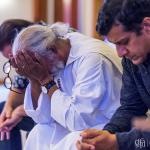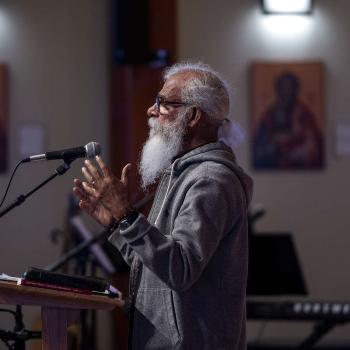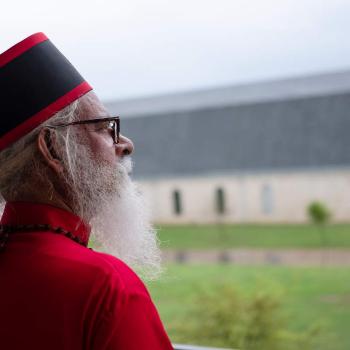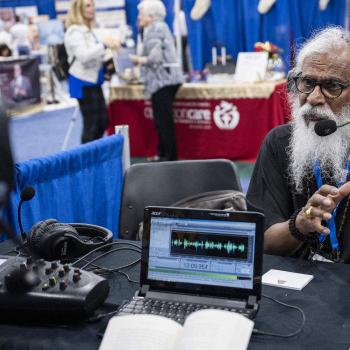Some 40 years ago, a scrawny stranger was escorted into my office. He introduced himself and explained he was from India. My son, Randall, earning some extra funds for school, was clipping bushes outside by the front door of our office building when this gentleman asked how to meet David Mains. “Sure,” said Randall, “I can help with that,” and escorted the newcomer into his dad’s office. Without a doubt, that was one of the most expeditious meetings of my life.
At the time, I was the director of The Chapel of the Air, a religious radio show that aired across the country on some 500 stations. KP Yohannan, as the young man introduced himself, had a burning vision for his country and was hoping he could find some Christian leaders in the States who would stand beside him as he attempted to launch what he felt was a God-given dream.
Being of the dreamer bent myself, I stopped what I was doing, invited him to sit down and listened to him tell me about the vision that was burning in his heart. Dreamers, I understood, could have kind of a hard go of it. In fact, almost everything I’ve felt God call me to do, I was told by kind skeptics that it would not work. You couldn’t go back into the inner city of Chicago and plant a church that would flourish. The neighborhoods were changing, poverty was creeping through the west side of the city, which we had targeted as not having enough churches. Not only could you not begin a church, you couldn’t possibly raise up a place with an inter-racial staff and an inter-racial congregation. Homogeneity was the word. The most successful churches were made up of people who were mostly alike. White folk with white folk. Asian-American churches. African-American churches.
Fortunately, we didn’t listen to those critics. I won’t say that planting a church on the west side of Chicago was an easy task, nor that we didn’t make mistakes (lots of them), but the church that started with 27 people in 1967 grew to 500 and became a model for many in the country as to the possibilities of racial diversity, the need for meaningful and creative worship that engaged the culture of our times, and the empowering of the gifts of the laity. The lessons we learned from one another stayed with many of us for the rest of our lives and framed our future ministry and life outcomes. Sometimes you just have to do what people tell you can’t be done.
So yes, I’m open to scrawny young men attempting to get a hearing because of this inner prodding and pushing and poking on the inside that won’t go away no matter how much they try. A dreamer always thinks: Is this silly idea really from God? It must be a matter of divine urgency because it is so persistent. I think about it day and night. I’m convinced that if I turn my back on this, it will become a matter of disobedience.
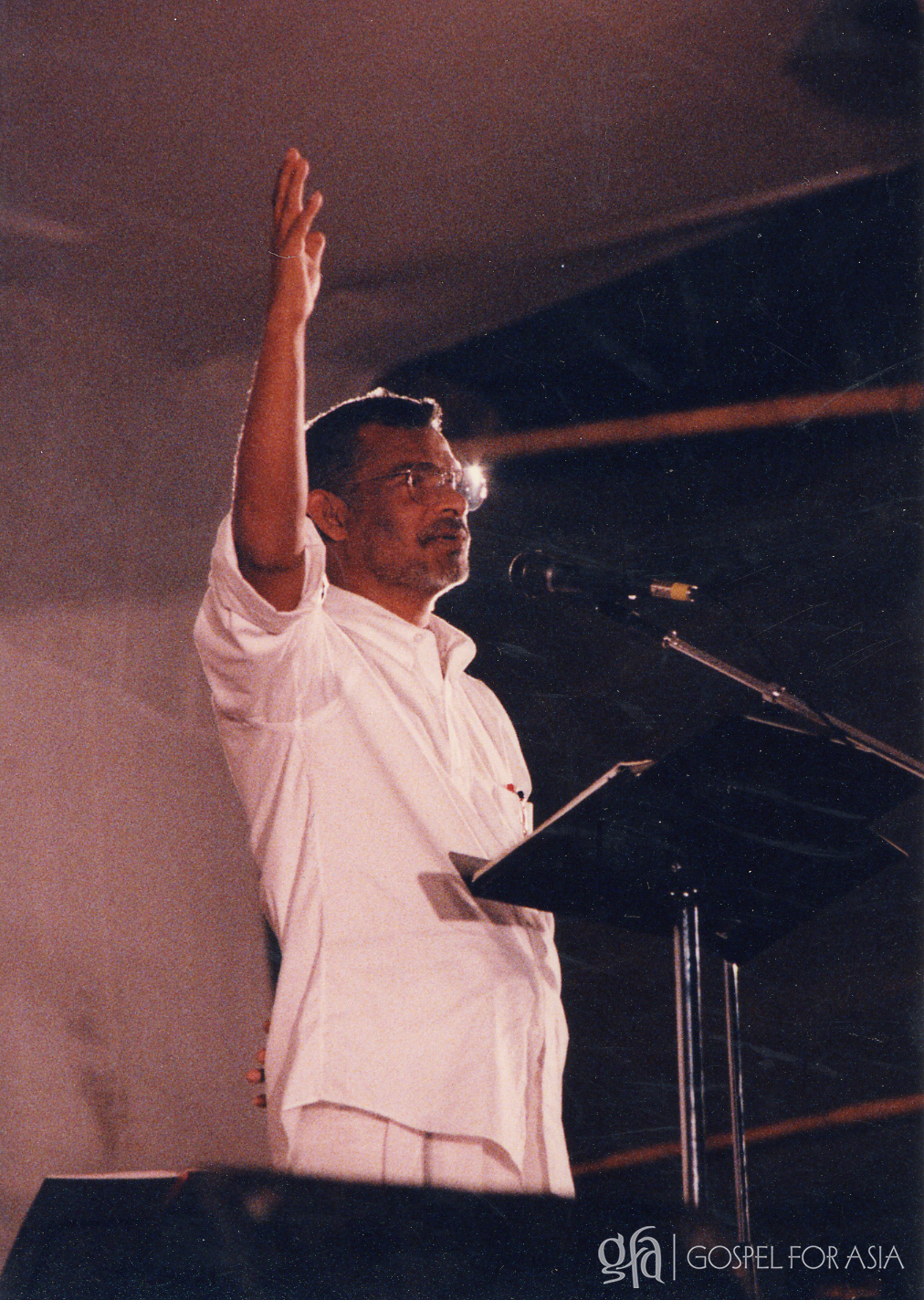
So I listened to the young man from India with the Indian name, KP Yohannan, tell me about the new concept that was pressing up against his soul. India, because of its reaction to colonialism and to Christianization, was turning its back against Western influences. As he was eventually to write in his first ground-breaking book, Revolution in World Missions.
In the 25 years following World War 11, 71 nations broke free of Western domination. And with their new freedom, most decided Western missionaries would be among the first symbols of the West to go…
As the doors of China, India, Myanmar, North Korea, North Vietnam and many other newly independent nations slammed shut on Western missionaries, it was natural for the traditional churches and denominational missions to assume that their day had ended. … Although it was rarely stated, the implication was this: If Western-based mission boards were not leading the way, then [world missions] could not happen.
The idea pressing on KP’s soul was the concept of national missionaries—Christian people in their own countries becoming missionaries to their own people. They often knew the language, understand the culture (or at least understood their own differing cultural beliefs and practices), had a concept of their own history and knew about the impact of colonization and the searing reality of cross-border wars. To KP Yohannan, 40 some years ago, the door was wide-open for national missionaries to step into the gap.
Today, an acronym in development circles is SROI (Social Return On Investment): What is the actual return in terms of measurable impact as a result of donor dollars given? This term was not current forty-some years ago, but KP Yohannan understood it conceptually: National missionaries could minister within their own countries at the fraction of the cost of sending and training Western missionaries.
Looking back at the first day I met KP Yohannan, the concept of national missionaries fulfilling Christ’s last command to His disciples didn’t seem all that revolutionary to me. It just made good sense.
The involvement of national missionaries, the funding and support of them, would, in fact, cause the message and love of Christ to be received in ways it might not have otherwise without the sometimes unintended dependencies or resistance that often develop by those attempting to import the “Western way of doing it” on nations finding their way in contemporary history. To me, not only did this all make sense, but the idea of a national missionary movement was a no-brainer.
I invited KP Yohannan home for dinner so we could talk more, discovered our family was due to attend a spaghetti-supper social at the nearby Christian high school and just hauled KP Yohannan along with us to the nearby gym to be part of this American social staple. After that evening, I vowed I would do everything in my power to help KP Yohannan advance what I had come to believe in a short afternoon and evening of conversation was indeed God’s dream.
Consequently, it was a delight to interview him on our national radio broadcast when opportunity permitted. I traveled to Asia on numerous occasions—emphasized that the Christian world was bigger than the laboratory of the denominations each of us had been spiritually nurtured within—and was thrilled to see the printing ministries open up, to meet with eager Asian pastors hauling their families across the highways and the byways of not just their own countries but neighboring Asian territories. I did a little coaching also as far as radio broadcasting—it is not basically a preaching venue, I taught. Radio is an intimate medium. Talk to the listener as though he or she were sitting across the dining table from you. Be direct, conversational, engaging.
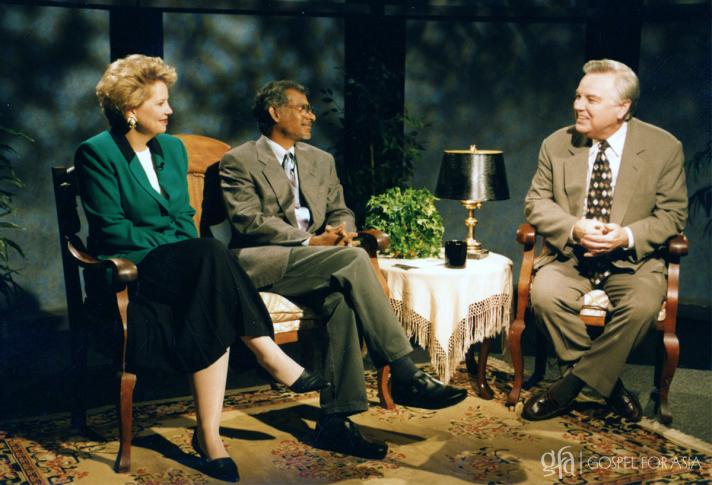
I always came home from these journeys humbled. Humbled by what God was doing with His dream through the passion of this one man, his faithful co-workers in the States and the growing thousands of national missionaries joining in the dream. Once, in a radio studio in Asia, I recorded an interview with some of my staff that were traveling on that particular journey. I looked up and nodded to the sound engineer, “Did you get all that?”
“Oh, no, no, no,” he replied with the typical Indian bobble of the head. “First we pray. Then we speak.”
First we pray, then we speak. This dream has been incubated with millions of hours of prayers, enriched with days of fasting, held together with nighttime vigils and advanced with sacrifice and obedience and single-mindedness. The national missionary has a passion for his or her country that is difficult to match by even sincere foreign interests. First we pray, then we speak.
What we didn’t realize, though I should have known it, was that much of the world is not always open to breakthrough ideas, particularly when they seem to threaten the status quo. It’s a good reminder to the dreamers of all kinds. Just because you are convinced God is pouring a vision into your heart and soul and mind, others may not be so convinced. Be faithful. Do what you are called to do. Sometime you may look back, some 20 or 30 or 40 years after you were obedient to that calling, and see that many of the disclaimers and skeptics and critics have become convinced there was, indeed, another kind of plan.
One of the best things I ever did in my whole ministering life was to welcome a young stranger into my office. Perhaps it was the very best thing I ever did in my whole ministering life. Gospel for Asia helps support thousands of national missionaries on the field, and those missionaries have helped the poor and hurting in Asia through remarkable means. In past years, these national missionaries have drilled more than 6,000 bore wells, have given away more than 400,000 micro-enterprise-generating gifts to families and individuals, have helped more than 15,000 adult women learn to read and write, and have empowered more than 75,000 children to receive a quality education. This doesn’t even include the thousands of community centers that have been planted in urban and rural regions of the country where people gather to learn and grow.
Scripture says: “Be not forgetful to entertain strangers for thereby some have entertained angels unawares” (Hebrews 13:2, KJV). Keep your hearts open to the strangers who land in your office (or at your front door or who hang around after church). Invite them in. Listen to what they have to say. Try to feel the heat of their God-given passion. You may not actually welcome angels, but dreamers are just as good.
That invitation may become one of the best things you will ever do in your life.
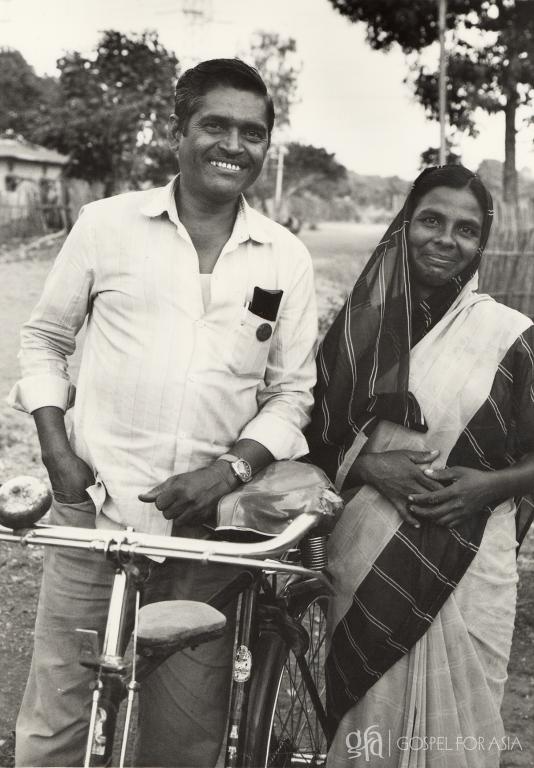
=====
Click here, to read more articles on Patheos by Dr. KP Yohannan Metropolitan.
Go here to know ore about Dr. KP Yohannan: SourceWatch | Wiki | Flickr


